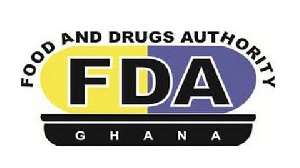The Food and Drugs Authority (FDA) has warned owners and managers of Hotels including operators of Canteens, Chop Bars, Kitchens and Restaurants to comply with the Public Health Act or have their licenses revoked.
The food vendors have therefore been asked to keep their facilities clean and ensure that their workers observed regular personal hygiene to prevent contamination of food sold to the public.
The Upper West Regional Director of FDA, Mr Albert Ankomah, who gave the warning was addressing scores of food sellers in the capital, Wa, on food safety and management practices.
The participants were advised to use only FDA approved liquid soaps for washing utensils in order to prevent chemical poisoning and guarantee in accordance with the Public Health Act 581 of 2012.
Part five section 51 and 52 states how offensive it is to sell food to the public from filthy environment and empowers the FDA to shut down any facility that fails to comply with the regulations.
Mr Ankomah urged food sellers and owners of canteens, restaurants, Kitchens and hotels to provide toilet facilities at their various facilities to prevent staff from visiting public toilets.
“We shall inspect all food selling facilities and when we come and you do not have toilet facility for your staff, we shall close down your facility with immediate effect,” he said. “This action is to prevent food handlers from introducing microorganisms from toilet into the kitchen”.
Mr Moses Ndewin Ndebugri, Regional Director of Ghana Tourism Authority, told the participants to keep their environments, especially toilet facilities, clean in order not to carry pathogens into their kitchens.
He made reference to one facility that missed the opportunity to win an award during the 2018 tourism award ceremony because the operators kept every place neat but ignored their toilet facility, which was unkempt.
“When we say keep your place neat, it includes our toilets because food handlers can carry micro-organisms into food and we fall sick after eating it,” he added.
The participants were taken through food safety management practices, how to keep records, the type of detergents to use in cleaning, demonstration on hand washing as well as prevention of public smoking by both clients and staff.
The participants wrote examination on two different set of questions to ascertain their level of understanding of the topic.
General News of Friday, 3 May 2019
Source: ghananewsagency.org

















